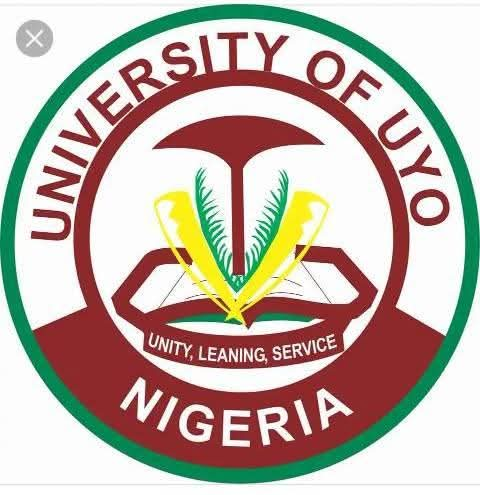EDITORIAL
Nigeria must not become a-one-party State?
The current gale of defections by politicians from the opposition parties in the country to the All Progressives Congress (APC) is concerning to lovers of political pluralism, and by extension, democracy. In fact, some observers see this as smacking of a drift from multi-party system that Nigeria has been known for, to a-one-party structure, which often fosters dictatorship and totalitarianism.
The situation is all the more troubling because, as most Nigerians would say, the ruling APC has done a horrible job of managing the nation’s economy and security. And this low grade performance leaves critical observers to wonder what the attraction to the party is. This is perhaps why some analysts accuse the APC of sowing the seeds of crises in the opposition parties.
At the start of the 10th National Assembly, the Senate’s membership composition was: APC – 59 seats; PDP – 36; Labour Party (LP) – 8; Social Democratic Party (SDP) – 2; New Nigeria Peoples Party (NNPP) – 2; All Progressives Grand Alliance (APGA) – 1; and Young Progressives Party (YPP) – 1.
However, following the recent defections, the Senate configuration now stands at: APC – 68 seats; PDP – 30; LP – 5; SDP – 2; NNPP – 1; APGA – 1; with two seats —one each in Edo and Anambra States — currently vacant.
Unfortunately, opposition parties, which had a greater majority in the House of Representatives and were nearly at par with the APC in the Senate at the inauguration of the 10th National Assembly on June 13, 2023, have suffered a significant depletion in their ranks.
The configuration story is yet to be fully told, as it is expected that with the recent defection of Governor Umo Eno of Akwa Ibom State from the PDP, some of the state’s federal lawmakers would follow suit. Akwa Ibom currently has two PDP senators and seven PDP members in the House of Representatives. When, not if, this happens, the standing of the parties in the National Assembly will further boost the dominance of the APC . Yet, beyond the change in the configuration at the National Assembly, similar shifts are expected to take place at State Legislatures and Local Government Councils, as the operatives will equally join the governors in their newfound party.
Given the country’s zero -ideology political system, many more politicians are most likely to join the APC, and if what we are hearing is true, the embattled Governor of Rivers State, Mr Siminalaye Fubara, will soon announce his defection to that party. If that happens, then the opposition Peoples Democratic Party (PDP) will exit the South South geopolitical zone, where it once held sway.
Commenting on the situation,while on Channels Television, the President of Ijaw National Congress (INC),
Prof. Okaba Benjamin, described it as ‘Malutocracy.’ ‘Malu’ in Yoruba language means, ‘cow’, and cows follow the instructions of the herder without a thought of their own or principle that guides them. In other words, it appears that wherever a governor goes, his appointees must follow; ditto the state legislators. This, in our view, is not good for our democracy.
The average Nigerian politician has shown that he is in a political party not as a result of ideology but as a platform for contestation for power and perks of office. That is why they move at will even without any logical or compelling reasons.
Nigeria becoming a one-party state would mean a single political party holding the right to form the government and exercising exclusive control over political power. In such scenario, other parties are either banned or allowed to participate in a limited and controlled manner. This is because key features of a one-party system include sole authority, limited or even restricted opposition, weak civic participation, governance by propaganda and censorship.
The corollary of the above is that the ruling party wields overarching power, often controlling all levels of government. That way, it becomes self-absorbed and sees itself as the only option of leadership. At its height, a single party state throws up a maximum ruler, who becomes bigoted to their personal ideas bandied as the people’s. This has happened in countries like China and Cuba, where their respective Communist Parties are the self-appointed sole depositories of political and economic sagacity and authority; North Korea, where the Workers’ Party of Korea controls the state.
Advocates of a one-party state argue that it guarantees stability and unity, leading to more effective policy formulation and implementation by avoiding political gridlocks and infightings. They also put up the argument of absence of formal opposition fostering easier implementation of government policies, because dissent is absent to distract government from pursuing set goals.
However, a multi-ethnic, multi-religious country like Nigeria with low grade political culture cannot afford to be ruled by a single party exercising absolute power. The concentration of power in the hands of one party can lead to unbridled corruption and abuse of power. There will definitely be suppression of basic freedoms of expression, assembly, and association.
Opposition parties, therefore, must resist every entreaty, bait or threat not just for their own well-being, but for the sake of a healthy society, to foreclose the emergence of a dictatorial and totalitarian system. The current silence displayed by the civil society community over critical national distresses like insecurity, massive hunger peaceful protests, and crude taxation bespeaks of what a one- party state could unleash on the country. We have seen civil society organisations pledging support for draconian government policies and some others at best remaining docile, and rather focusing attention more on issues that have no relevance to government questionable policies. WatchmanPost believes that rather than have a one-party system, Nigeria needs a strong and incisive opposition that would keep government in check for the good of the people.

